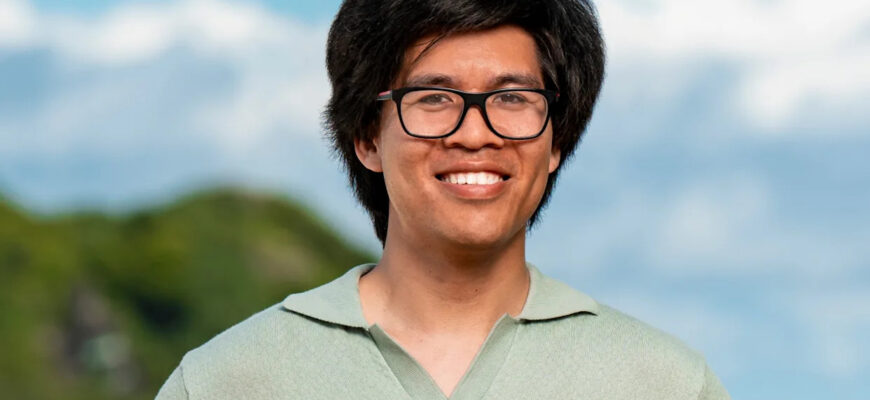In an era where competitive video gaming transcends basement battles to fill stadiums, a new kind of warrior has emerged onto the mainstream stage. Meet Jason Treul, better known in the esports circuits as `Waterfalls,` a formidable competitor in Super Smash Bros. Project M. His latest challenge, however, isn`t a digital opponent or a high-stakes tournament bracket; it`s the unforgiving social experiment known as Survivor 49. Treul`s journey from mastering frame data to navigating tribal councils offers a compelling narrative on how the strategic prowess honed in virtual worlds translates into tangible real-world advantage.
Treul, a 32-year-old law clerk and former Google software engineer, found himself thrust into the intense environment of Survivor merely 12 hours before filming began, stepping in as an alternate. Far from being overwhelmed, he brought with him a unique strategic toolkit, meticulously crafted over years of high-level competitive gaming. This isn`t just a contestant; it`s a grandmaster applying the principles of a complex meta-game to the ultimate reality television challenge.
The Gamer`s Arsenal: Beyond Reflexes and Joysticks
Competitive gaming, particularly in fighting games like Super Smash Bros., demands far more than quick reflexes. It cultivates a sophisticated strategic mindset. Players must understand intricate character matchups, exploit minute vulnerabilities, manage resources (like character abilities or “stocks”), predict opponent behavior, and adapt to evolving “meta-games” – the prevailing strategies adopted by top players. It`s a constant cycle of observation, analysis, hypothesis testing, and execution, often under immense pressure. These are precisely the skills that prove invaluable on Survivor.
Treul`s inspiration traces back to another Smash Bros. legend, Ken Hoang, who competed on Survivor: Gabon in 2008. This lineage highlights a growing trend: esports professionals are not just entertainers; they are strategic thinkers par excellence, capable of dissecting complex systems, be they digital or interpersonal.
Treul`s Tactical Blueprint: From Pixelated Foes to Tribal Alliances
Perhaps the most fascinating aspect of Treul`s approach is how explicitly he applies his gaming background. Before the game truly began, he devised a secret system using a Game Boy, categorizing fellow contestants like Pokémon into boxes labeled `Ally,` `Vote them off,` and `Unknown.` This isn`t merely quirky behavior; it`s a practical application of game theory and resource management. Each contestant is a variable, a potential asset or threat, and understanding their “stats” and “abilities” is crucial for optimizing one`s own chances of victory.
Furthermore, Treul’s strategic philosophy offers a stark contrast to conventional Survivor wisdom. He values an advantage like `Steal-a-Vote` more highly than a hidden immunity idol. Why? His explanation is rooted in the mathematical precision familiar to any fighting game enthusiast. An idol offers protection; a `Steal-a-Vote` actively shifts numerical power in a way that can be mathematically devastating in a close vote. It`s about optimizing the odds, calculating the “frame data” of social interactions and leveraging subtle shifts in power dynamics, much like finding the optimal move sequence in a high-level match.
The Irony of Underestimation: The “Poindexter” Advantage
One of Treul`s most intriguing gambits is his deliberate cultivation of an unassuming persona. “I want them to think I’m a huge Poindexter,” he revealed, playing into stereotypes of gamers as socially awkward or less physically formidable. This is a classic strategic feint, a cloak-and-dagger approach where his apparent harmlessness becomes his greatest weapon. While others might be sizing up physical threats or charismatic leaders, the “little kid playing his Game Boy” quietly analyzes, calculates, and builds his intricate web of alliances, often unnoticed.
There`s a delicious irony in this. In a world increasingly valuing “real-world” experience, the abstract, often misunderstood domain of competitive gaming is proving to be an unexpected crucible for developing elite strategic minds. These are not merely digital pastimes; they are intense training grounds for pattern recognition, adaptive thinking, and psychological warfare.
A New Paradigm for Survival
Jason Treul`s presence on Survivor 49 is more than just a casting novelty; it`s a testament to the evolving definition of strategic prowess. It reinforces the idea that the skills cultivated in esports are directly transferable to high-stakes, real-world competitive scenarios. As the lines between the digital and physical worlds continue to blur, we may very well see more strategists from the virtual arena bringing their refined intellect to traditional fields, subtly gaming the system, one pixel-perfect move at a time.
His journey is a fascinating experiment: can the analytical rigor and adaptive genius forged in the heat of competitive gaming truly conquer the social complexities and physical demands of a deserted island? If Treul`s early game is any indication, the answer might just be a resounding “Game On.”








